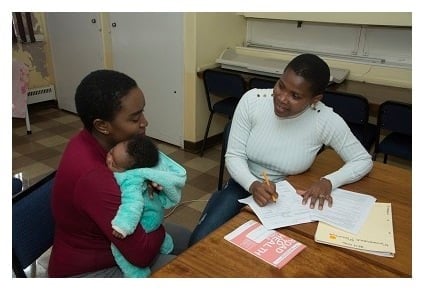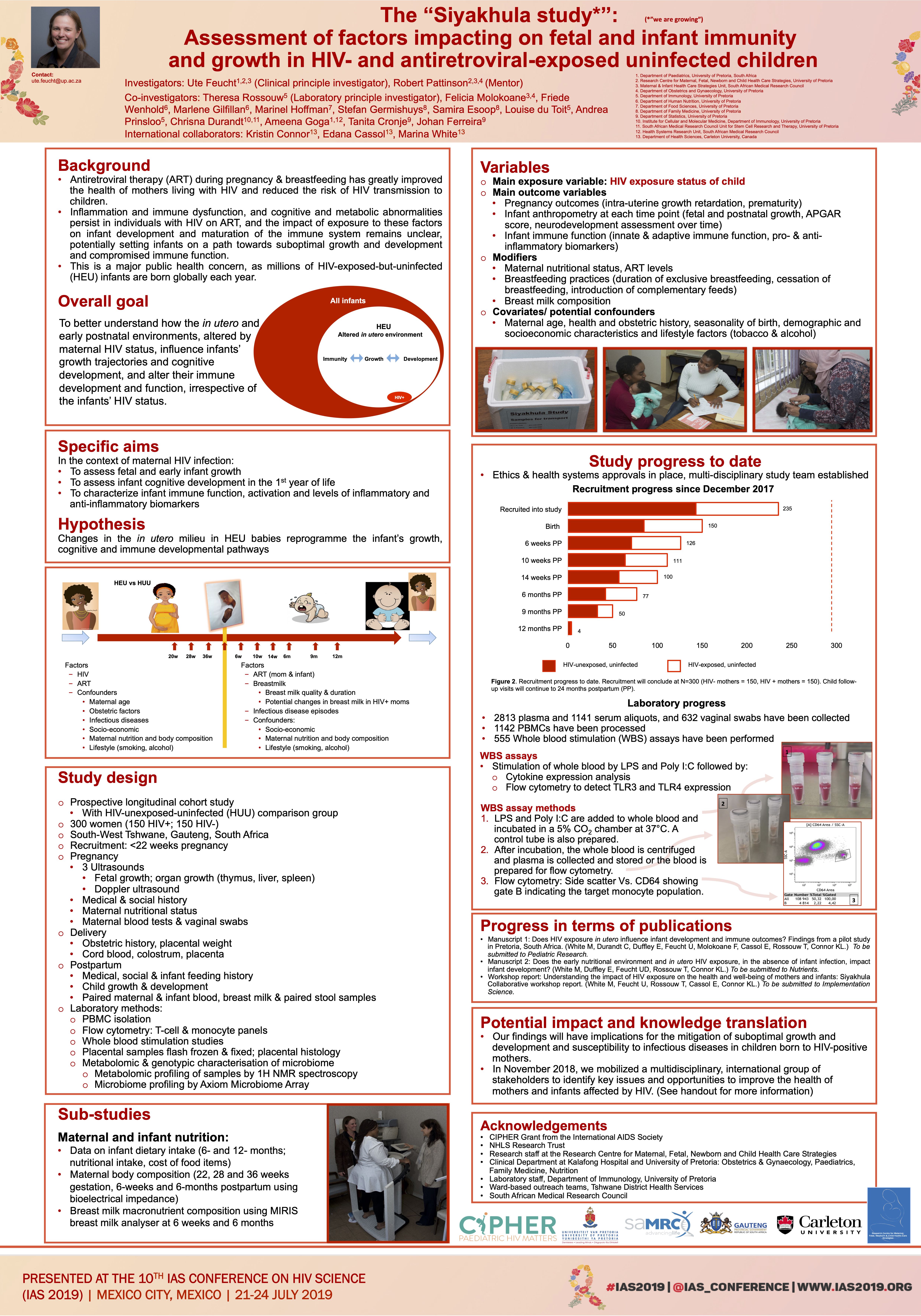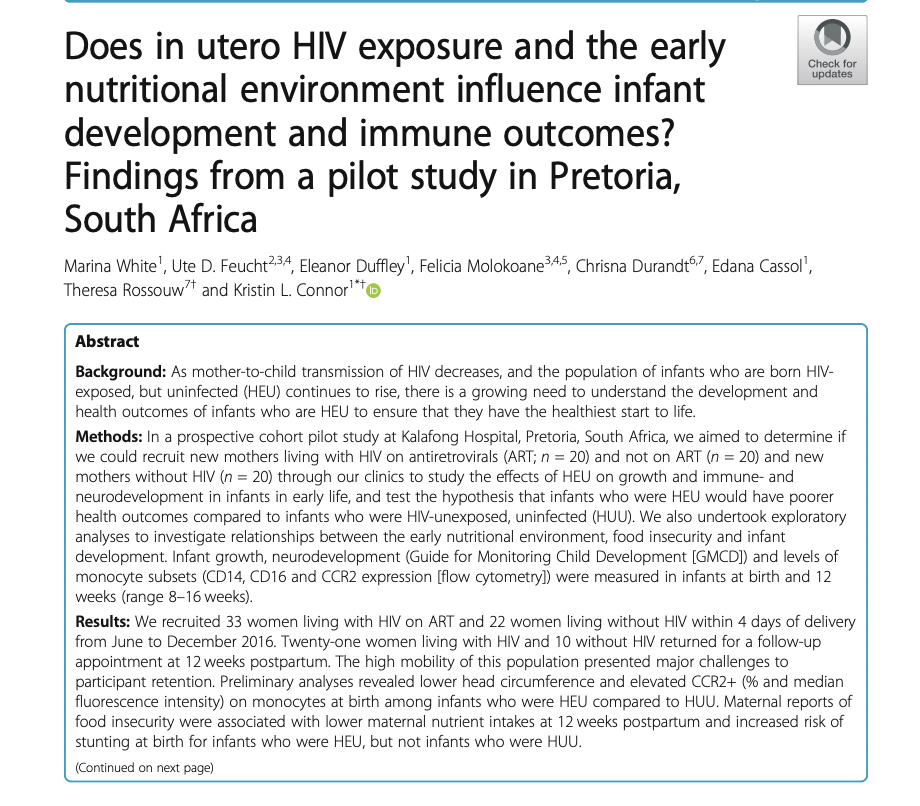The “Siyakhula study”: Assessment of factors impacting on fetal and infant immunity and growth in HIV- and antiretroviral-exposed uninfected children

The use of antiretroviral therapy (ART) during pregnancy and breastfeeding has greatly improved the health of women living with HIV and lead to a decline in mother-to-child HIV transmission. Despite the success of ART in greatly increasing the number of children who are HIV-exposed-but-uninfected (CHEU) children, the treatment has been implicated in suboptimal health outcomes in CHEU. CHEU children are a growing population and assessing the potential risks associated with antenatal HIV- and ART exposure is critical. The Siyakhula study has set out to understand how the in-utero and early postnatal environments, altered by maternal HIV-positive status, influence infants’ growth trajectories and cognitive development, and alter their immune development and function, irrespective of the infants’ HIV status. The Siyakhula study is based in Southwest Tshwane District.

Investigators
- Ute Feucht: Principle investigator (Clinical)
- Felicia Molokoane, Ph.D. candidate
- Marike Boersema, Researcher/Collaborator
- Marlene Gilfillan, Ph.D. candidate
- Friede Wenhold, Researcher/Collaborator
- Samira Essop, Student (Family Medicine – Kalafong Hospital)
- Stefan Germishuys, Student (Family Medicine – Kalafong Hospital)
- Marinel Hoffman (Rothman), Researcher
- Phumudzo Tshiambara (Mamphwe), Ph.D. candidate (University of Pretoria, Food Sciences)
- Mothusi Walter Nyofane, Ph.D. graduate (University of Pretoria, Food Sciences)
- Ntshepase Matete, BSc student (University of Pretoria, Food Sciences)
- Chorene Rodfrey Mafodi, MSc student (University of Pretoria, Nutrition)
- Theresa Rossouw: Principle investigator (Laboratory)
- Louise Du Toit, Ph.D. candidate (University of Pretoria, Immunology)
- Andrea Prinsloo, Ph.D. candidate (University of Pretoria, Immunology)
- Charné Coetzer, MSc student (University of Pretoria, Immunology)
- Senku Ramubula, MSc student (University of Pretoria, Immunology)
- Iwan Sipsma, MSc graduate (University of Pretoria, Immunology)
- Brandon Kleynhans, MSc graduate (University of Pretoria, Immunology)
- Tafadzwa Nerwande, MSc student (University of Pretoria, Immunology)
- Nomonde Nolutshungu, MSc student (University of Pretoria, Immunology)

Collaborators
Sponsors
Publications
White M, Feucht U D, Duffley E, Molokoane F, Durandt C, Cassol E, Rossouw T, Connor KL. Does in utero HIV-exposure and the early nutritional environment influence infant development and immune outcomes? Findings from a pilot study in Pretoria, South Africa. medRxiv. 2020 Jan 1:19003889. https://doi.org/10.1186/s40814-020-00725-8



Get Social With Us
Download the UP Mobile App